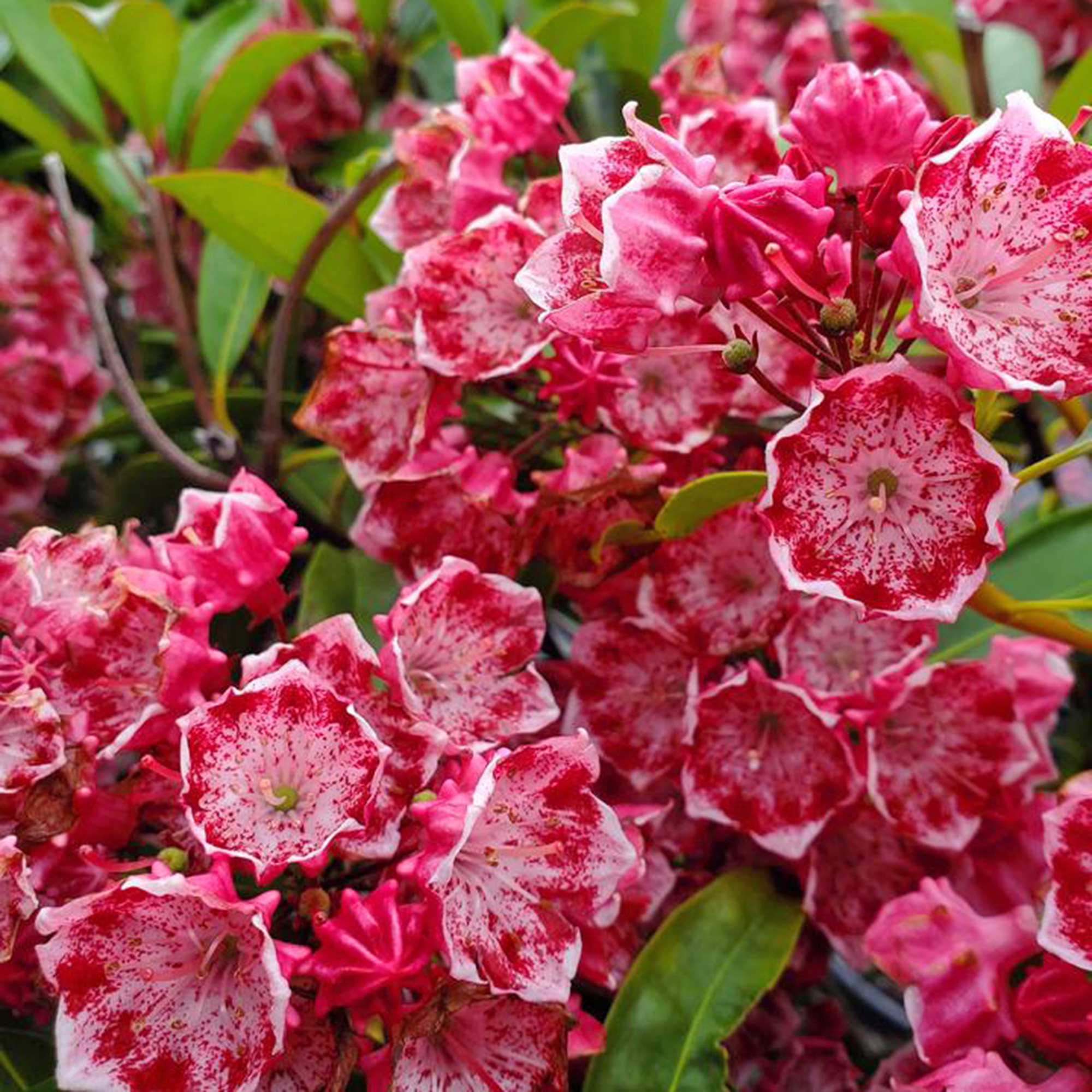8 Stunning Shrubs For Front Yards To Add Instant Curb Appeal
Discover the perfect front yard shrubs that will frame your home and create an inviting, lush entrance.

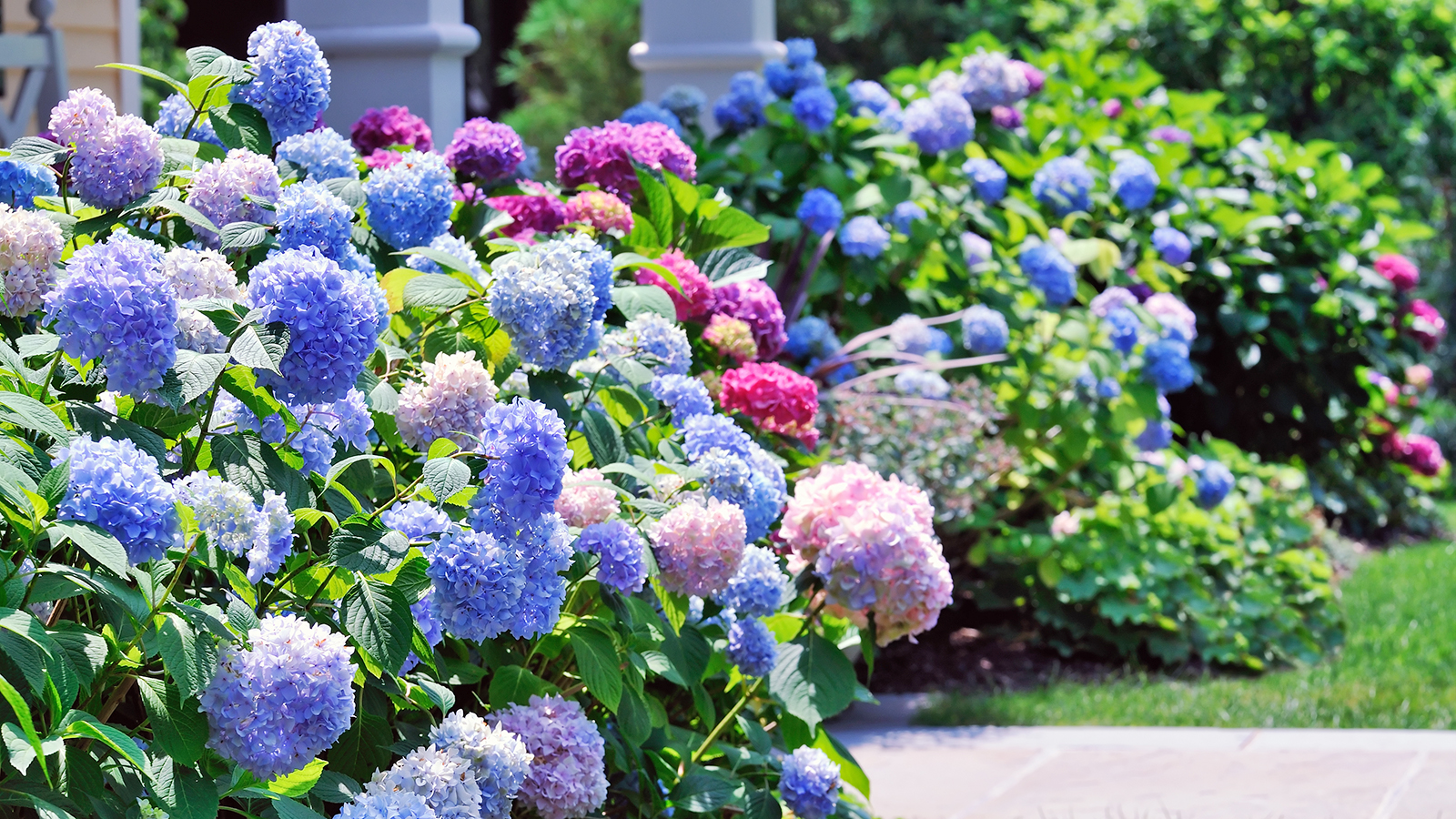
Everyone wants good curb appeal. Whether you’re selling a property or just enjoy having a home that looks nice from all angles, the shrubs you choose for the front yard make a big difference. Certain front yard plants will add value to your home, so it pays to make the right choice.
When choosing shrubs for curb appeal, think about what they will look like throughout the seasons. The longest-blooming perennials will provide interest in spring, summer, and fall. Where space is limited, a single versatile shrub can be the star of your small front yard landscaping ideas.
However, even attractive shrubs could detract from the appearance of your home if you can’t maintain them or if they don’t grow well in the conditions available. Choose low-maintenance plants for front yards if you want to keep work to a minimum.
In addition to appearance, consider shrubs that are hardy in your USDA hardiness zone, will grow well in your soil type, and can tolerate the amount of sunlight available. Then, you can consider things like flowers, foliage, and seasonal interest.
Here are some great shrubs for front yards to brighten up a variety of situations.
1. Boxwood
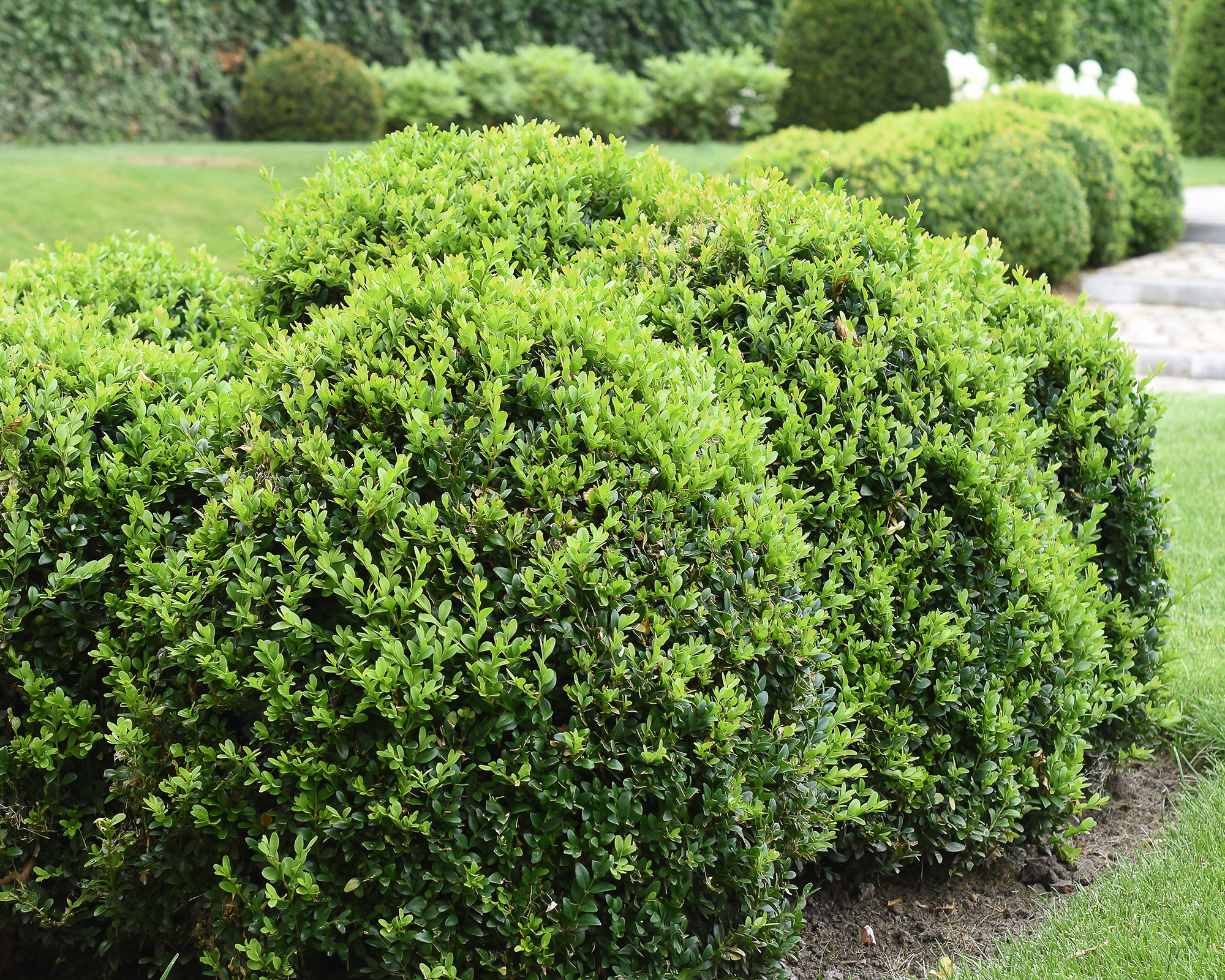
Boxwood does not produce conspicuous flowers but can be great for curb appeal in other ways. These dense, evergreen shrubs grow in zones 5 through 8 and come in different varieties with various sizes. All can be trimmed into rounded shapes or given sharp, square edges.
The tidy edges of trimmed boxwood shrubs lend a formal air to a home. Use them as borders, along walkways, and in front of windows. For summer color, plant low annual flowers in front of boxwood hedges.
Sign up for the Gardening Know How newsletter today and receive a free copy of our e-book "How to Grow Delicious Tomatoes".
2. Knock Out Roses
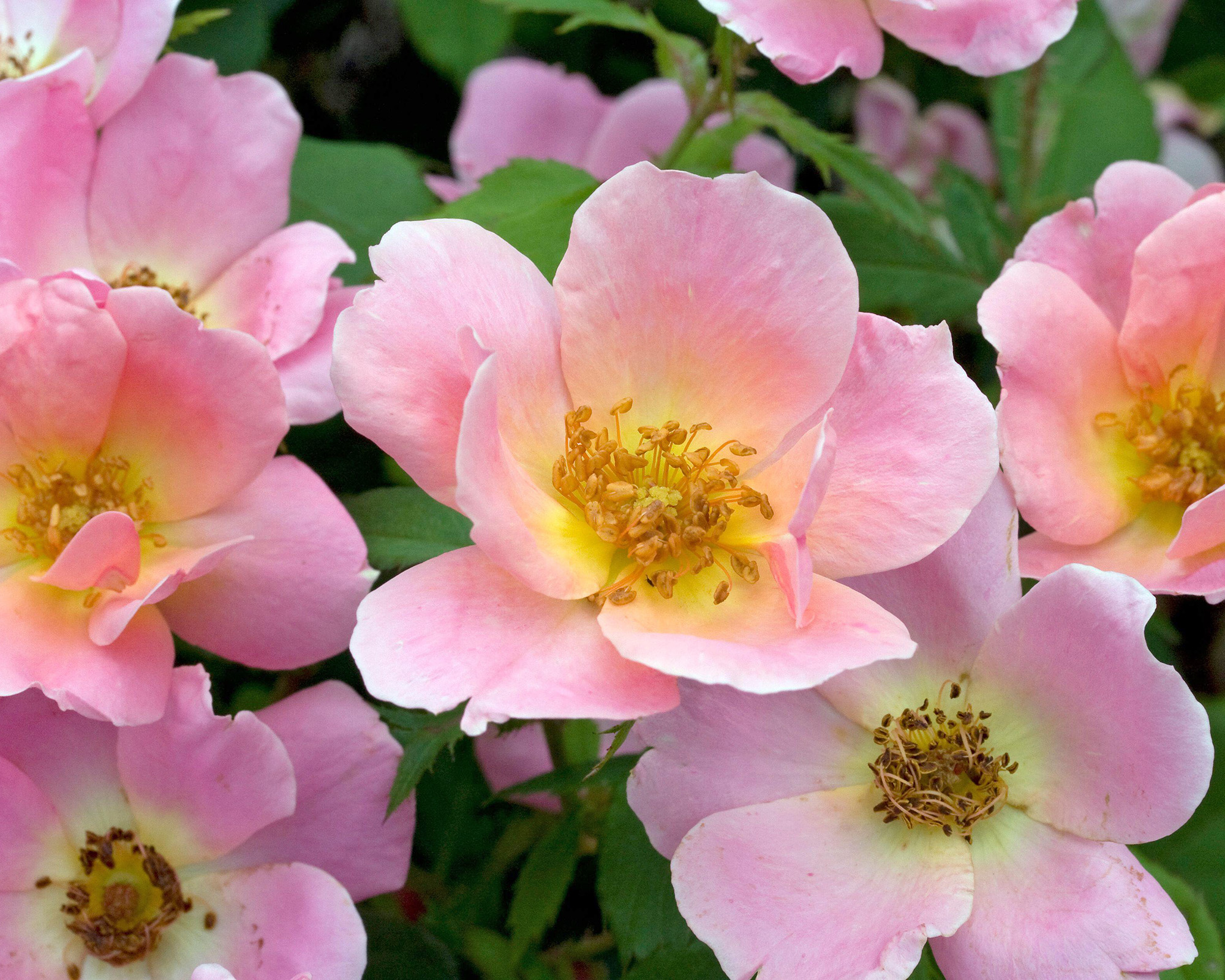
Any rose can add elegant curb appeal to a home or a touch of shabby chic, but they aren’t always easy to grow. The ‘Knock Out’ series of roses has everything good about this flowering shrub but is easy enough for beginners to grow. There are options for USDA zones 5 to 11.
These are truly fuss-free roses that bloom in several cycles from early spring to late fall. Although easy to grow, they do need full sun, fertilizer, and plenty of water with soil that drains well.
3. Hydrangeas
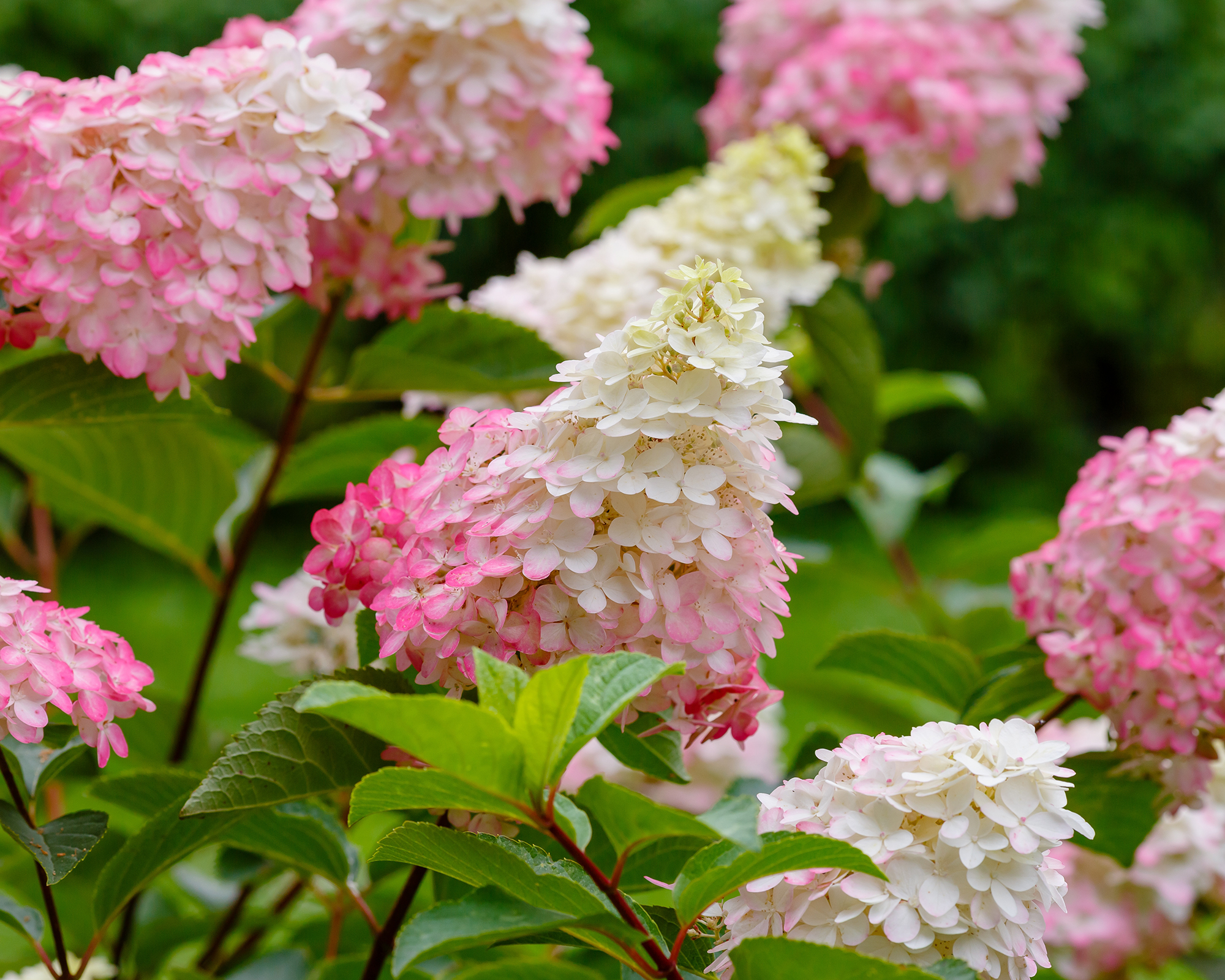
Hydrangeas are hard to beat for curb appeal, especially when in bloom. There are a few different types and many varieties with hardiness in zones 3 through 7.
When in flower, hydrangeas put on a stunning show with large panicles of delicate flowers in white, green, blue, and various shades of pink.
Not only do hydrangeas produce show-stopping flowers, but their blooms are long-lasting, often from spring through summer and into fall. Many varieties change color as they mature, adding even more visual interest.
Choose oakleaf hydrangea for large shrubs that require little maintenance; smooth hydrangeas are good for colder climates; bigleaf hydrangeas give you the characteristic deep blue and pink colors.
4. Spirea
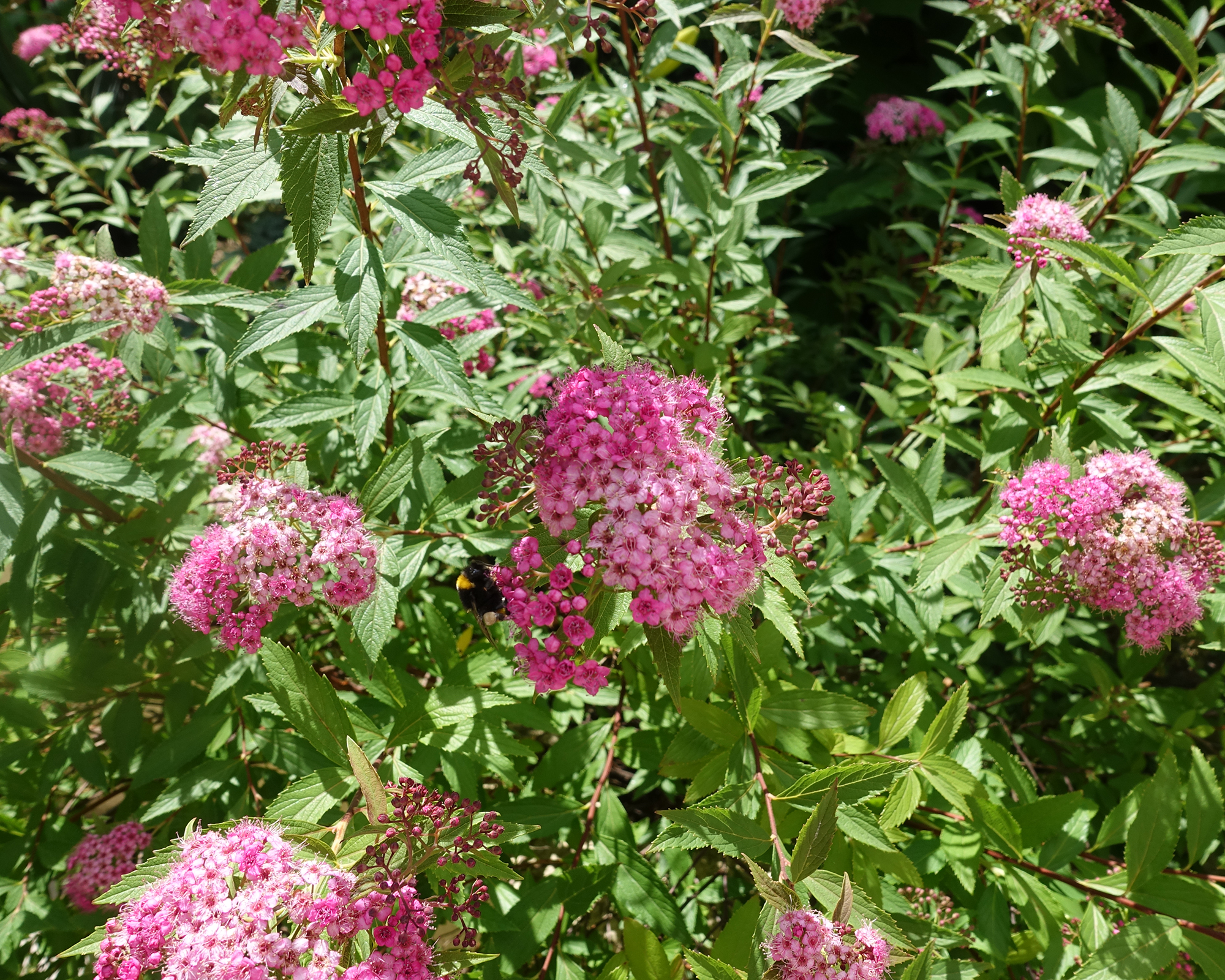
Spirea is a popular landscaping shrub for several reasons. It’s easy to grow and comes in many varieties of different heights and shapes. There are options for USDA zones 3 through 9.
For maximum curb appeal, look for spireas that offer spring and early summer flowers, summer greenery, and striking fall colors.
‘Tor’ is a variety that turns shades of purple, red, and gold in fall; ‘Magic Carpet’ provides deep red for its fall color; and ‘Candy Corn’ turns a rich yellow in fall with touches of orange.
5. Fothergilla
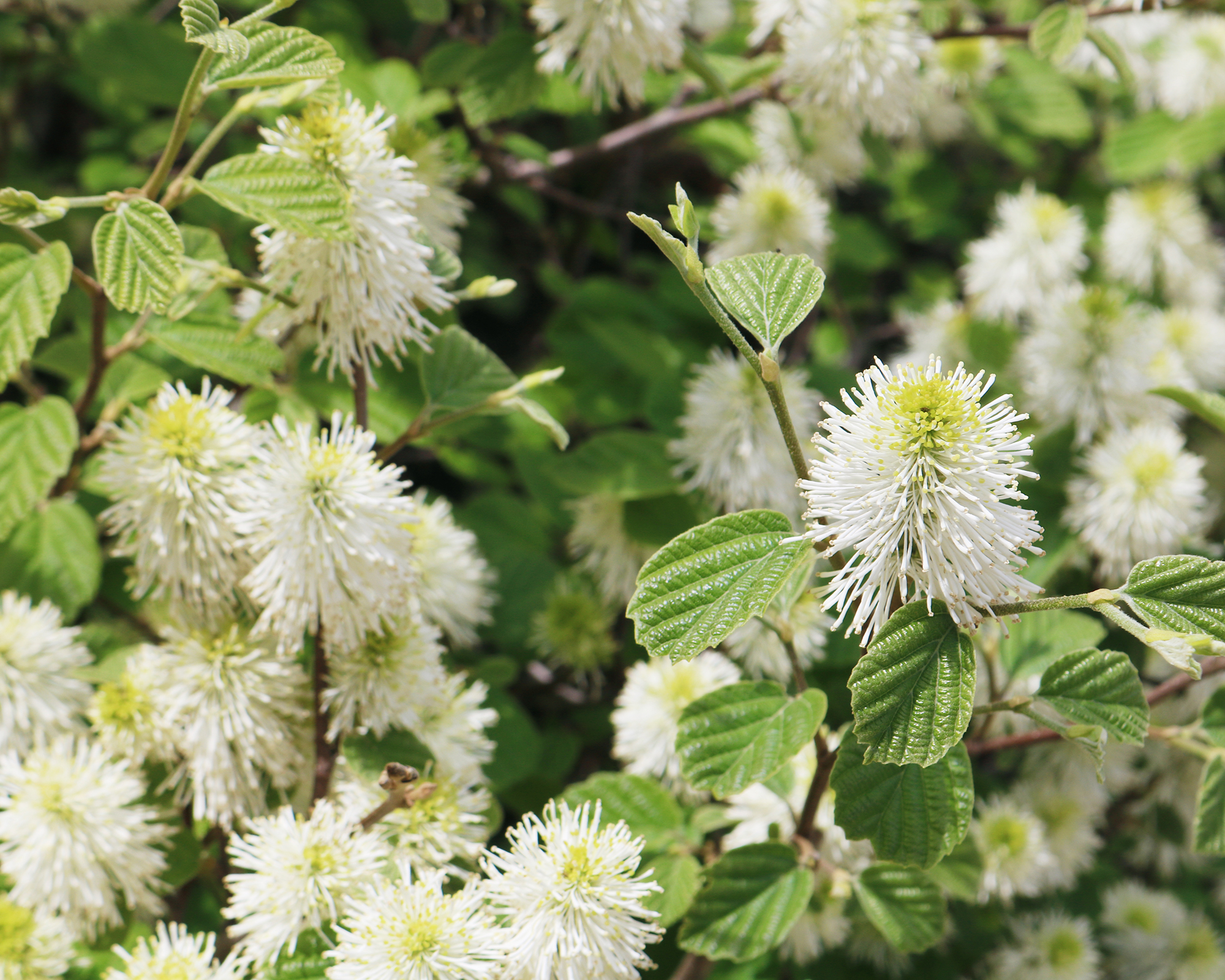
A good choice for three-season color is fothergilla, a native shrub for zones 5 through 8. It produces sweet-smelling flowers in spring, pretty blue-green leaves in summer, and bright fall colors ranging from burgundy to orange to bright yellow, depending on the species or variety.
‘Blue Mist’ has a very good blue summer color and a mounded shape, although its fall color is less striking than that of other varieties. ‘Harold Epstein’ has greener leaves, superior fall color, and a smaller size than other varieties. ‘Red Licorice’ offers excellent red fall color.
6. Gardenia
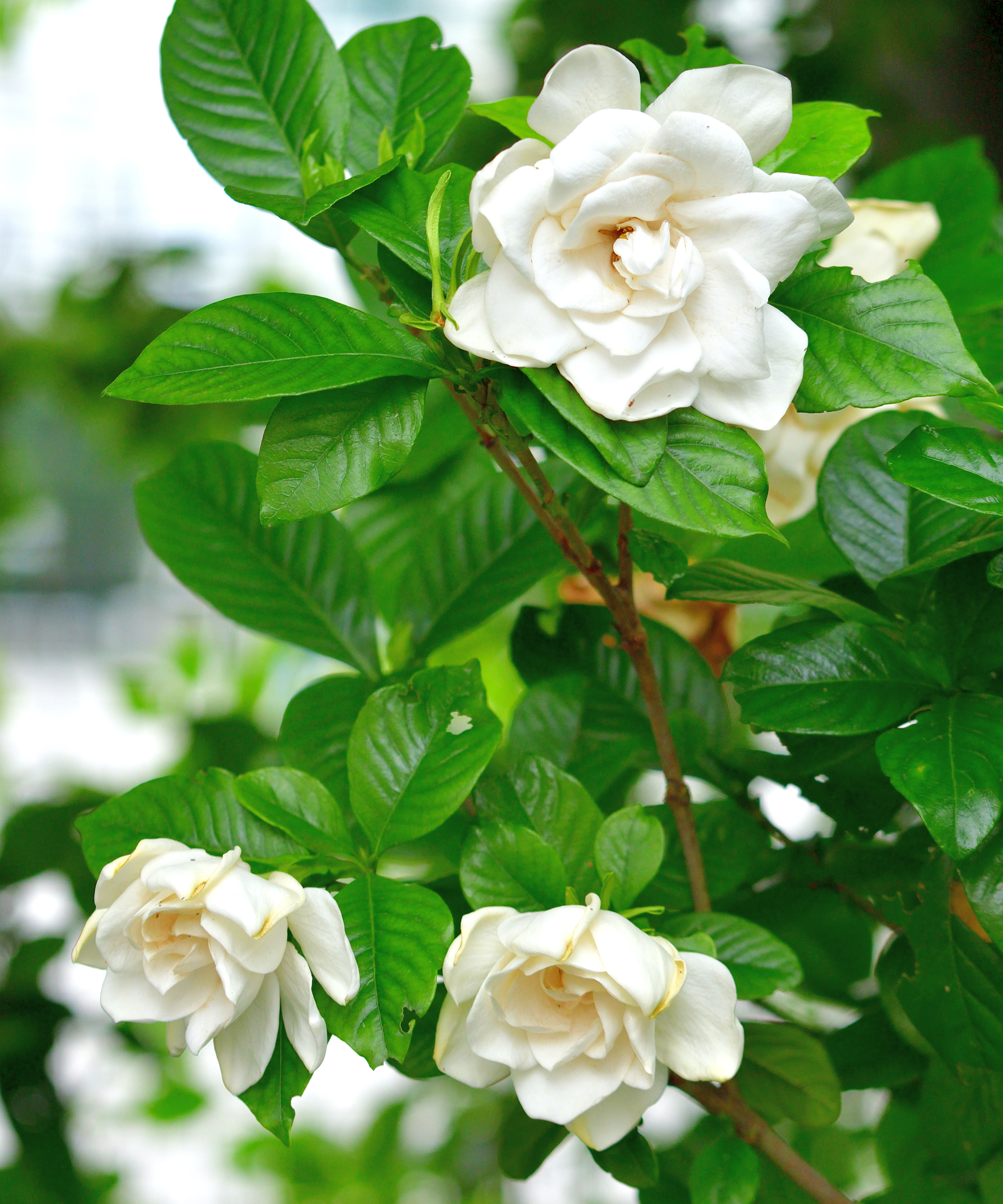
For southern yards, gardenia is hard to beat as a striking shrub. Some varieties are compact, while others are larger. They can grow anywhere from 3 to 8 feet (0.9-2.4m) tall, so it’s easy to find a type that fits your home’s needs.
Gardenia shrubs produce beautiful white flowers that often last all summer and that have an intoxicating aroma.
In addition to the flowers, gardenia shrubs have very attractive foliage – the leaves are thick, glossy, and deep green. In their hardiness zones of 8 through 10, gardenias keep this foliage year-round.
7. Holly
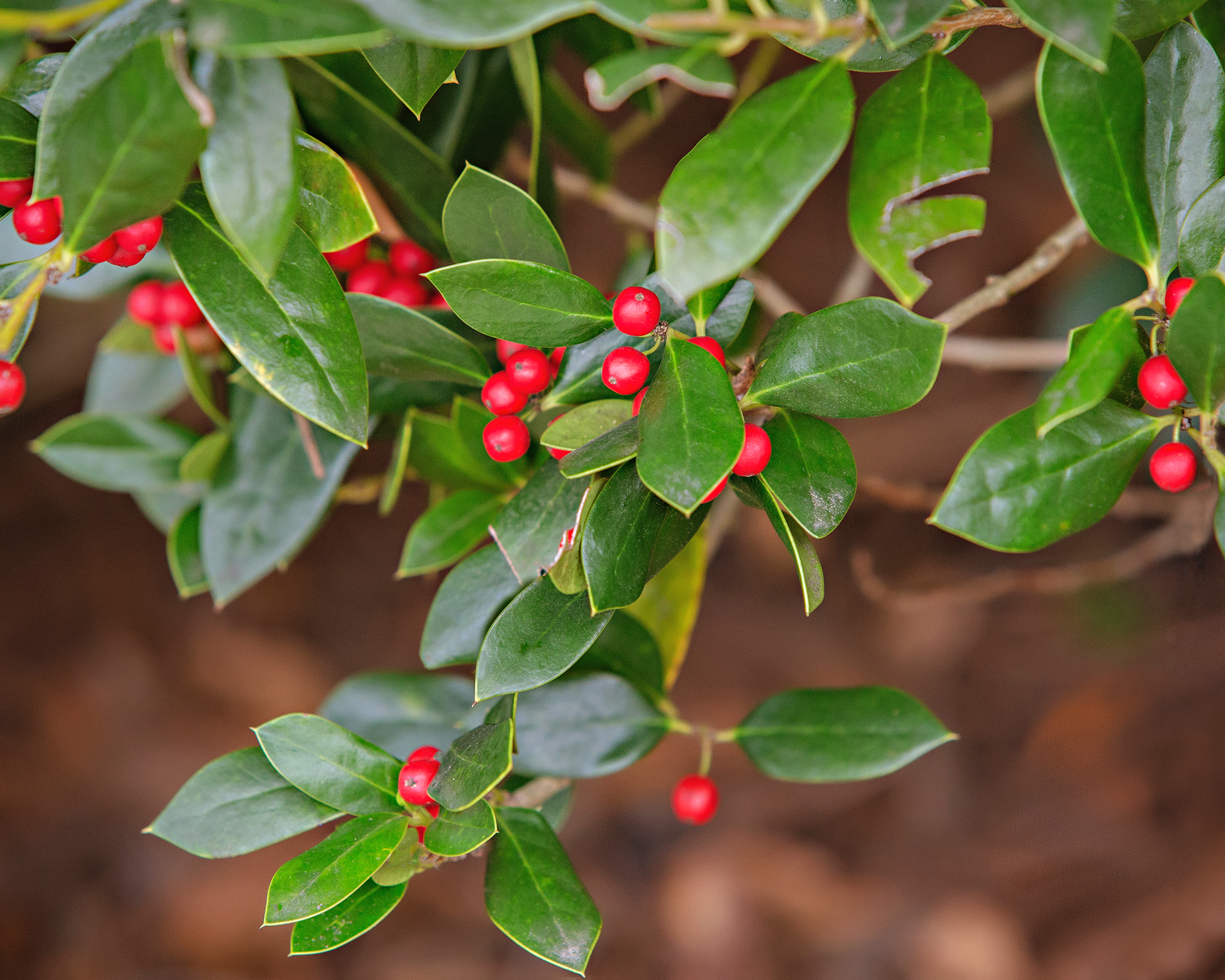
Evergreen hollies are excellent choices for year-round green foliage and red winter berries. You can find many different types of hollies to suit your location and space.
Native American holly is a tree-like shrub that will grow best given adequate space. Native inkberry has black berries, which are not as striking as the red ones but are still attractive. Dahoon holly is good for warmer climates and is hardy in zones 7 through 11. It is a broadleaf evergreen that grows well in swampy conditions.
8. Arborvitae
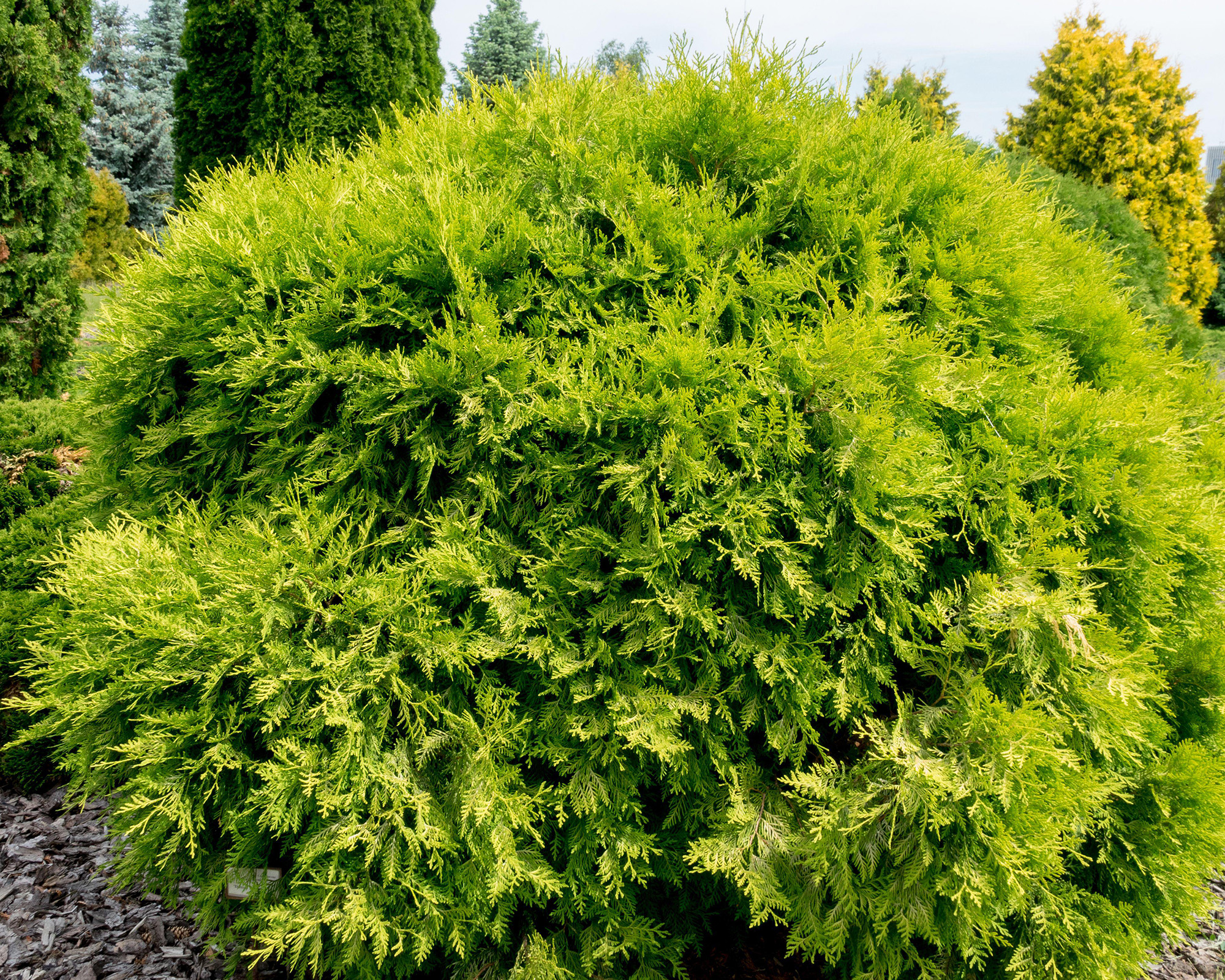
Another evergreen choice is arborvitae. It's a popular landscaping shrub because plants grow quickly into tall hedges or small, shrubby trees excellent for creating privacy screens and barriers. These provide fast curb appeal along the sides of gardens like living fences.
American arborvitae is readily available with many cultivars. ‘Emerald Green’ is popular for its bright green foliage; ‘Brandon’ has an appealing conical shape; ‘Tom Thumb’ is a small variety that grows no more than about 15 inches (38cm) tall.
This article features products available from third-party vendors on the Gardening Know How Shop.

Mary Ellen Ellis has been gardening for over 20 years. With degrees in Chemistry and Biology, Mary Ellen's specialties are flowers, native plants, and herbs.
